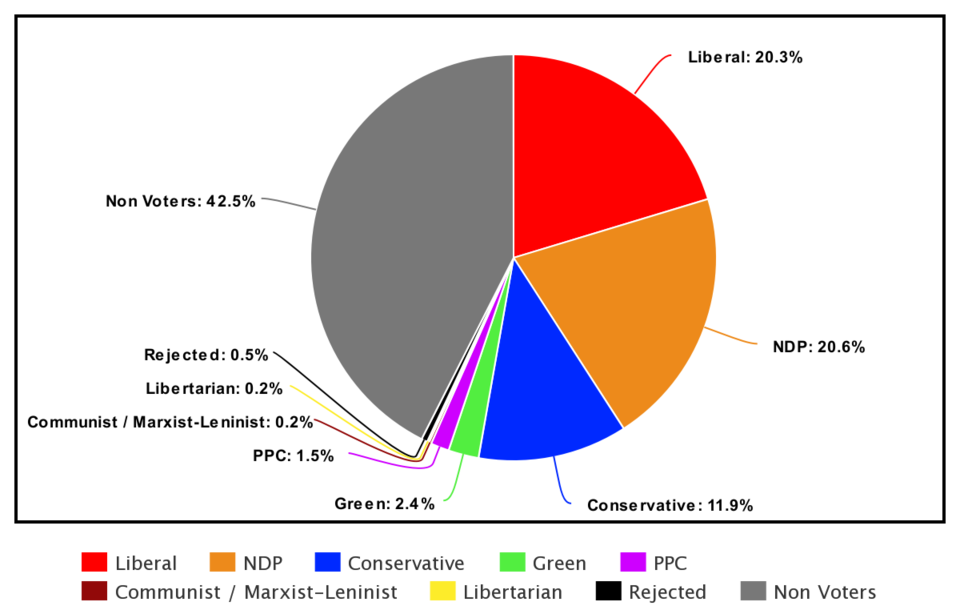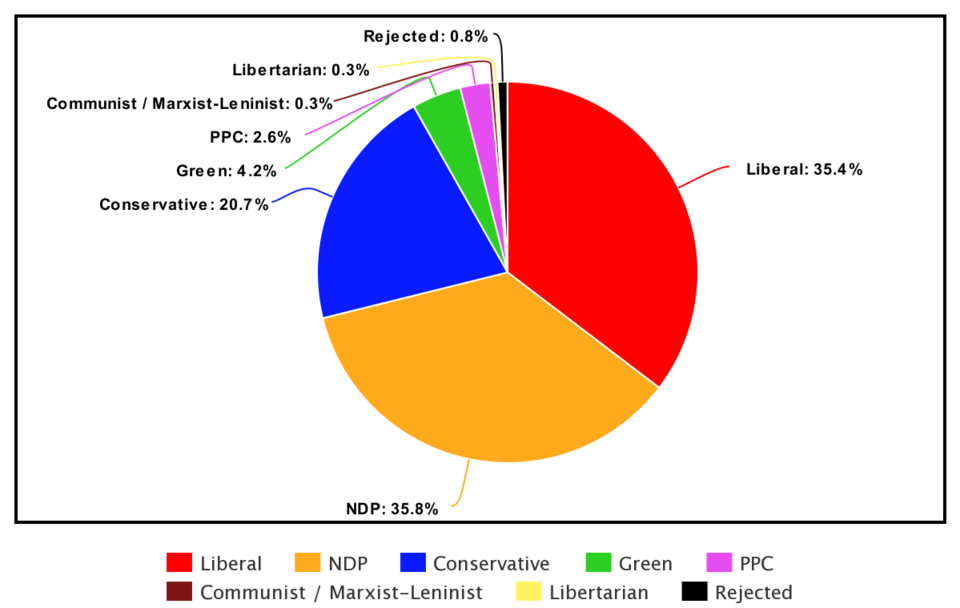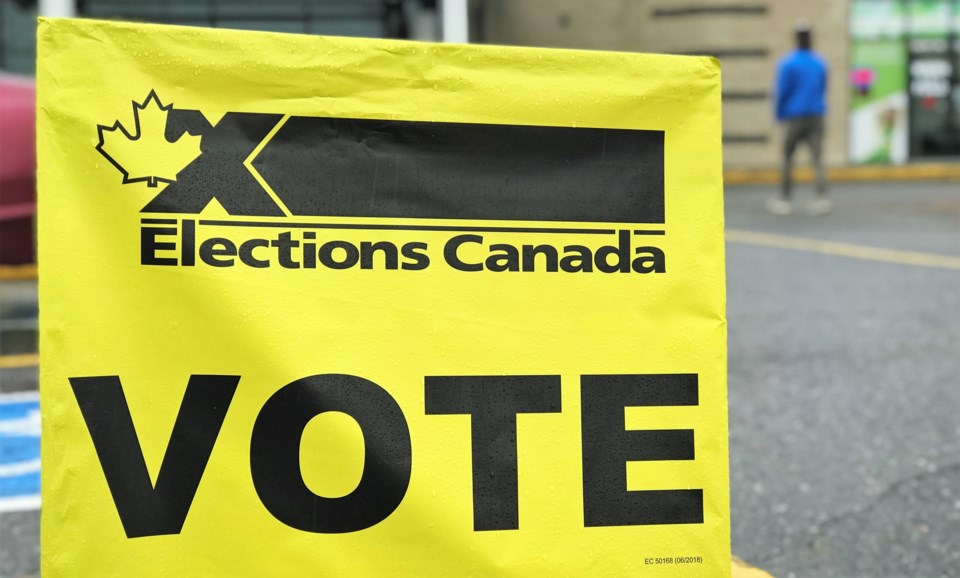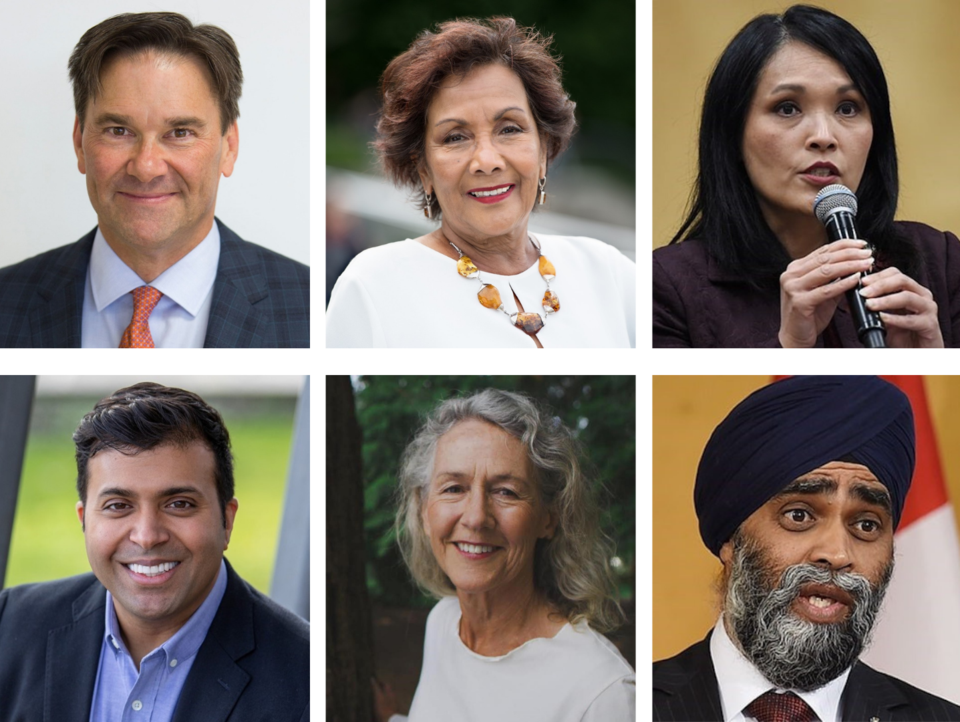This past election didn't really change a lot when looking at who sits in Ottawa, but in Vancouver some trends were noticeable across the city.
The city has six ridings: Vancouver Centre, Vancouver East, Vancouver South, Vancouver Kingsway, Vancouver Quadra and Vancouver Granville (but we'll just refer to them by their last names).
The biggest trend, it seems, continues to be a limited participation in democracy. Four of the six ridings in Vancouver had voter participation under 60 per cent, with Kingsway leading the way with only 54 per cent of eligible voters casting a ballot in 2021, followed closely by East and South (both hit 55 per cent). Nationwide participation appears to be around 62 per cent; only Quadra broke that barrier with around 63 per cent.
Oddly enough, in 2019 Vancouver was around 62 per cent, but, at the same time, Canada was above 67 per cent. The pandemic may have soured some on voting, but 2021 didn't see any sort of record-setting lows; during the 2000s, at the end of the Jean Chretien-era and throughout the Stephen Harper-era, national voting was in the low 60s and dipped below 59 per cent in 2008.
As in 2019, the apathy vote led the way in all ridings by a wide margin; in fact, each gained big numbers in every single riding. A minimum of 2,400 fewer voters cast a ballot in each riding.

Growth and losses
With that said, of the five parties running candidates across the city, three saw fewer votes than in 2019. The PPC, in their second election, did see huge relative growth, but limited growth when compared to the big picture (more on that below).
However, the big growth happened over in the NDP camp, where they gained more than 13,700 votes. And while both incumbents (Jenny Kwan in East and Don Davies in Kingsway) saw losses, they still held huge numbers and were 1-2 in votes received across the city.
The big gainer was Anjali Appadurai (picking up more than 9,600 votes over the NDP's 2019 candidate), who lost a tight race to Liberal Taleeb Noormohamed in Granville. However, the other three NDP candidates all saw four-digit gains (a rare feat this election), with Breen Oullette edging closer to longtime Liberal MP Hedy Fry in Centre (losing again, but this time by 5,000 instead of 10,000).
Big losses hit the Green party hard (more below on that, as well), while the Liberals, who lost nearly 10,000 votes citywide, had plenty of support to spare from 2019 when they collected more than 20,000 more votes in Vancouver than any other party.
One odd trend across the city seemed to be the disappearance of independent candidates. In 2019 Vancouver saw four independents run; in 2021 no one ran independently. In one well-documented case, former Liberal Jody Wilson-Raybould stepped down as the Independent MP from Granville. In another, Imtiaz Popat, who ran alone in Centre in 2019, grabbed the Green nomination in Granville.
There were actually six fewer candidates city-wide this time around. Along with the extinction of the Vancouver independent, only one Libertarian ran (in East) and the Greens left South uncontested.
In fact, the collapse of the Greens appears to be the most dramatic story across the city; they received fewer than half the votes they had in 2019, dropping from 29,000 to 11,800. While some of that is due to not running a candidate in one riding, South was their weakest riding in 2019 with only 2,445 votes. All Green candidates lost support, with some seeing thousands of fewer ballots cast in their name. While they're still the fourth-place party in the city, it's a huge drop from 9.6 per cent of the vote to 4.2 per cent.

Which party overall got the most votes in Vancouver?
With four Liberals and two NDP MPs headed to Ottawa, the elected politicians don't exactly match the city's vote. The NDP actually got more votes than any other party, with over 100,000 across the six ridings. However, the Liberals were just 1,100 behind. Between the two parties, they accounted for more than 70 per cent of the vote.
The Conservatives came in a relatively distant third overall, with over 58,100 votes; that's about 20 per cent. That 20 per cent is spread out, as well, with no obvious foothold in the city. They came in third in all but one riding, Quadra, where Brad Armstrong came a distant second to incumbent Liberal Joyce Murray (both lost support compared to 2019, while the NDP's Naden Abenes gained 1,500 votes, but still fell well short of Armstrong).
Much was made about a possible split in right-wing support as the PPC rose through the 2021 campaign, but the numbers don't necessarily show that as an absolute. The PPC saw more support in every riding, but the Conservatives also saw some candidates receive more votes than the 2019 candidate (Centre and Granville).
What happened to the 'Purple Wave'?
In its second election, the PPC undoubtedly grew its support, grabbing hold of the anti-vaccine crowd, but whether that growth is from traditionally Conservative voters, those who don't usually vote or voters moving from other parties isn't obvious. In Vancouver, they more than doubled in votes received, though it's still a relatively small amount with under 7,200 ballots across the city. To give that some perspective, if all those voters moved to one riding that would be a third or fourth-place finish. As it was, they finished fifth behind the Greens in every riding except South, where no Green ran.
The 'Purple Wave' promised by Maxime Bernier turned into several hundred new votes per riding. In no case would the PPC vote have made any significant difference for Vancouver Conservative candidates, except to move Sukhbir Singh Gill into a distant second in the South. In general, the PPC moved from getting around 1 per cent of the vote to 2.5 per cent, with a high of 3.2 per cent.

However, the Conservatives did get 8,200 fewer votes in Vancouver this election, which is not a trend they were hoping to see (and a loss larger than all votes for the PPC). The vast majority of that was in the South, where Gill received 5,300 votes fewer than Wai Young did in 2019 when she challenged Liberal Harjit Sajjan for the seat. That was the biggest drop in Vancouver. In that riding, the PPC only saw gains of 572, while both Sajjan and the NDP's Sean McQuillan saw gains of around 2,000.
Vancouver Granville a hotly-contested riding
One of the most talked-about ridings in the country was Granville to fill the seat vacated by Liberal-turned-independent Wilson-Raybould. Since she was leaving as independent, it was unclear where her support would go (more than 17,000 votes with uncertain loyalties) and polls the weekend before election day suggested it was essentially a three-way tie between the three major parties.
In the end, Liberal Noormohamed took it with fewer than 400 votes more than NDP Appadurai, while Conservative Kailin Che was a few thousand out of contention. The numbers show everyone gained votes from Wilson-Raybould's exit (except the Greens), with Appadurai taking the lion's share, though not enough to catch Noormohomed, who gained nearly 3,000 votes over his 2019 campaign.
If Vancouver was one riding with six seats and seats were determined by percentage of vote, it's safe to say the Liberals and NDP would each have two seats and the Conservatives one. From there, there's no clear winner of the last seat, though the Conservatives and Greens would likely have the best claim.




